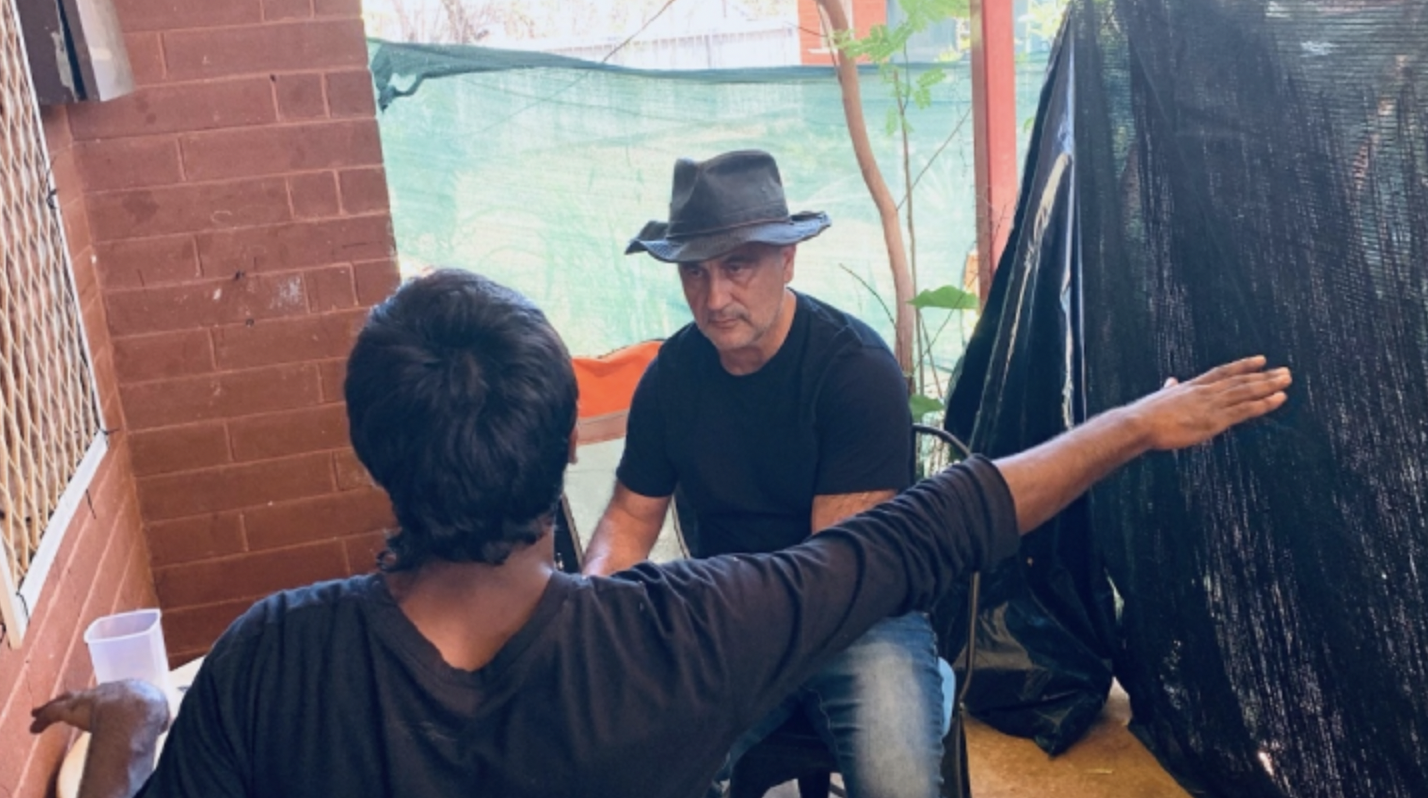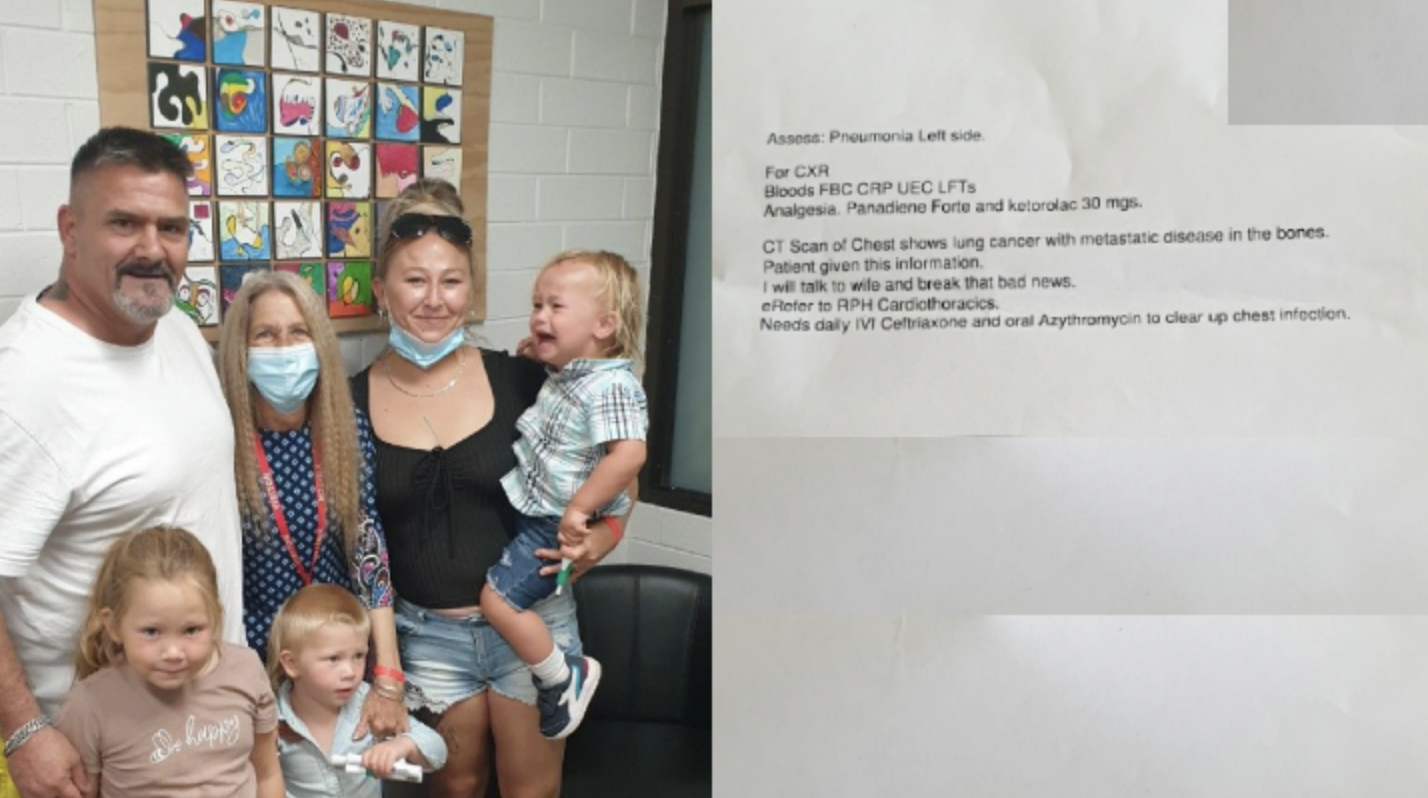New Deportation Regime Fails Terminally Ill Father of Six Australian Children

Robert Taylor was recently diagnosed with lung cancer and, as the disease has commenced spreading to his bones, the UK-born 50-year-old father of six Australian kids and nine grandchildren is afraid his time is running out.
In a sign of understanding, immigration authorities have transferred the man, who arrived in WA in 1974, at the age of 10 months and has never since left the jurisdiction, to Perth Airport Immigration Detention Centre, as its closer to hospitals than his former carceral setting at Yongah Hill.
But Andrew Giles doesn’t sympathise with Taylor’s plight, as despite recent appeals made to him personally, the immigration minister has refused to revoke the man’s visa cancellation, which was issued as he’d failed the character test contained in section 501 of the Migration Act 1958 (Cth).
This latest refusal, however, came after the minister had issued Direction 99, which, taking effect on 3 March, provides additional provisions to revoke cancellations as greater consideration can now be given to “the strength, nature and duration of ties in Australia” and “the best interests” of minors.
So, Taylor’s situation raises questions as to how sincere the Albanese government has been in committing to reform the heightened immigration regime enacted in late 2014, as a direction merely acts as a guide for decisionmakers, and in this case, it’s failed to produce the promised outcomes.
Double punishment
“I know I did wrong,” remarked Taylor, who was sentenced to time inside for a nonviolent burglary. “I hit a low point in my life and made some bad choices. But no one got physically hurt, and since then I’ve turned my life around.”
“I’ve done my time, and now I just want to go home to my children. I have always been there for them,” the lifelong Australian resident told Sydney Criminal Lawyers. “The thought of going back to the UK is when suicidal thoughts go into my head.”
Under the regime toughened in 2014 by then immigration minister Scott Morrison, the 501 character test now sees noncitizens, who’ve been sentenced to more than 12 months prison time – including suspended sentences, multiple terms and time in rehab – automatically deported.
This case further goes to the morality of our nation, as it refuses to bear responsibility for a person who was raised and has resided here since infancy. And then there’s the issue of double punishment, as even though he’s served his time like anyone else, Taylor’s now to be deported.
“I can’t be away from my children and grandchildren forever more, because with deportation there’s little chance of ever being allowed to visit, which I also wouldn’t be able to afford,” added Taylor, who, these days, has no family whatsoever in the United Kingdom.
Impoverished and unrepresented
After Taylor’s appeal of his visa cancellation was refused by the tribunal, WA advocate and arbitrator Gerry Georgatos advised him to personally appeal to minister Giles following Direction 99 having been issued, as it’s supposed to specifically cover individuals in the WA father’s situation.
Indeed, Taylor, one of his daughters and Georgatos all separately wrote to the minister, in light of the new stipulations that length of stay and connection to Australia, alongside the impact on deportees’ children, weigh more heavily on appeals against visa cancellations.
Yet, while acting as advisor, Georgatos was unable to provide representation during the appeal hearings, due to a health issue. And he recalls that back in 2021, when he was still appearing in court, 374 out of 390 appeals failed, with most of them involving self-represented deportees.
“It is a moral abomination that the majority were unrepresented. They stood little chance,” Georgatos told SCL. “The reprehension is these mostly impoverished Australia-living individuals have been torn from their families.”

And in considering that he successfully represented a Philippine-born man in much similar circumstances to Robert in 2021, Georgatos believes that if he, or another legally-informed individual, had stood for Taylor during his appeal, he’d have likely have been permitted to stay.
Shirking responsibility
PM Anthony Albanese promised to reform the Abbott era regime on being elected, after years of pressure from the New Zealand government, as the overwhelming majority of people who’ve been captured by the 501 regime since its enhancement have been from over the ditch.
Close to 3,000 NZ-born individuals have been deported over the last eight years, with many having been thrown out due to multiple minor offences, a large percentage having left their families behind, and due to some other broad provisions, some have been turfed without any convictions.
The Australian prime minister first suggested that the regime would be cleaned up as early as last July, in response to the high volume of long-term NZ residents, who’ve been thrown out of the country, and Direction 99 went on to be issued in January this year.
But many had hoped that the new federal Labor government would have seen reason and amended the character test and other deportation provisions within the Act, rather than simply issuing a nonbinding direction that suggests consideration be taken but not necessarily acted upon.
While Georgatos further asserts that despite Direction 99 having a universal application to all noncitizens residing here regardless of origin, he suggests that these considerations are primarily being applied to New Zealanders slated for deportation due to the nations’ regional relationship.

Kafkaesque and compassionless
“There’s no place for discrimination of any type,” Georgatos declared, adding that it breeds a society of “compassionless ideologues”, who internalise the draconian sentiments of racism and classism that are latent within government policies.
The social justice advocate pointed to the persistence of former NZ prime minister Jacinda Ardern in pushing the issue of deportations and how they unfairly impact her nation, which left the incoming Albanese government with no choice but to be seen to be acting on this issue.
However, the revised regime has done nothing for a man in Taylor’s situation, and according to Georgatos, it’s likely to do little to assist many of the individuals continuing to battle the 501 deportation regime, especially those without any legal representation.
“Robert has served his penance. He has lived just about his whole life in Australia. His 15 children and grandchildren love him. And he is dying,” Georgatos said in conclusion.
“We need a Direction 100, which states that no one is to be deported or, at least, no one who has spent the majority of their lives in Australia.”







